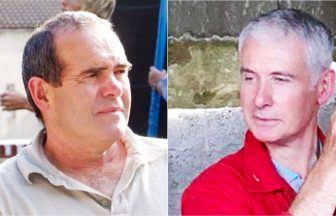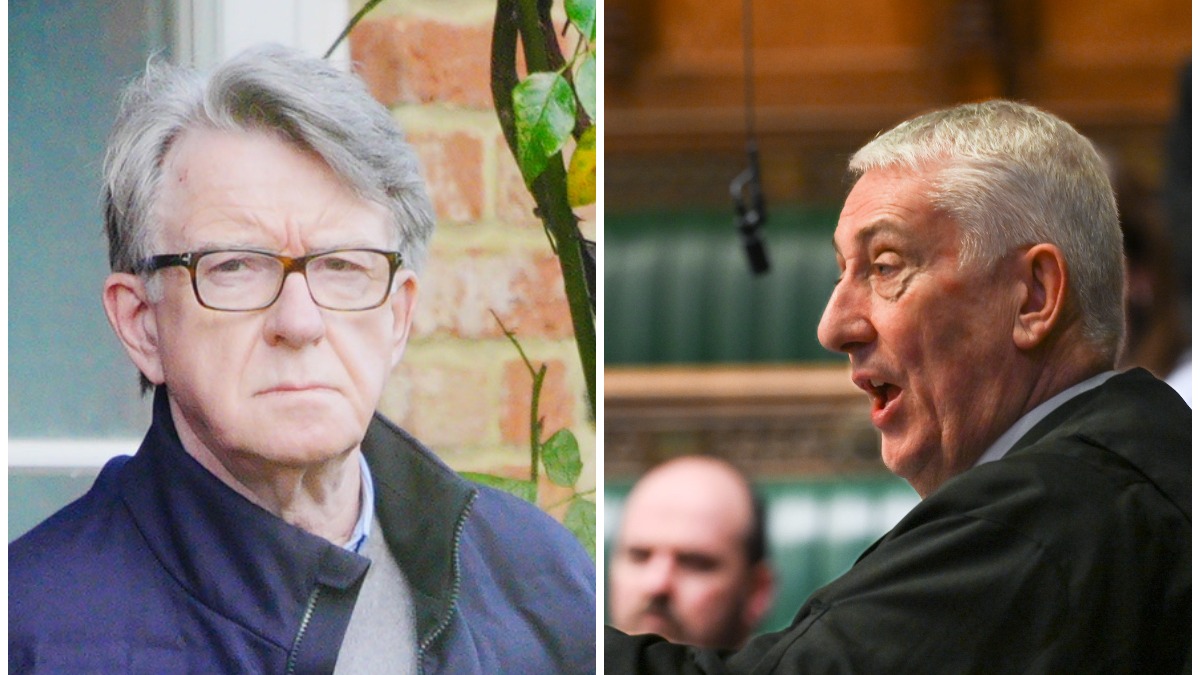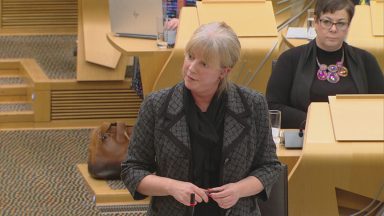Tony Blair was responsible for a breakdown in relations between the Scottish and UK governments in the 2000s, Alex Salmond has said.
The former SNP leader and first minister made the claim ahead of an appearance at an inquiry into relations between Holyrood and Westminster.
The Scottish Affairs Committee probe was set up last year to mark the 25th anniversary of devolution and has already heard from three Scottish secretaries.
It will hear from Nicola Sturgeon in April.
Salmond, Scotland’s first minister from 2007 to 2014, criticised Blair, the UK’s prime minister from 1997 to 2007, for not speaking to him throughout the entire six-week overlap of their premierships.
Relationships with No 10 improved greatly by the time Gordon Brown replaced Blair as prime minister, according to Salmond, with good relations continuing into David Cameron’s time as PM.

Salmond, who now leads the Alba Party, said ahead of his appearance at the inquiry: “When I took office in May 2007 there had not been a meeting of the key Joint Ministerial Committee, between Westminster and Holyrood for five years.
“This was despite both Scotland and Wales having unresolved disputes with the UK Treasury running into the hundreds of millions of pounds.
“In addition in that same month in 2007, Blair negotiated a deal in the desert with colonel Gaddafi with the aim of securing oil concessions for BP by transferring Mr Al Megrahi from Scottish to Libyan custody.”
The Alba Party leader claimed that Blair failed to tell the Scottish Government or his own cabinet about the meeting.
He added: “Only later has the truth emerged about his contempt not just for devolution, but for Scots law, and the extent to which the Libyans saw the prisoner transfer of Megrahi as part and parcel of a commercial oil deal.”
At the time, the UK Government had signed a memorandum of understanding with the Libyan government over prisoner exchanges.
But Downing Street denied the agreement covered the Abdelbaset Al-Megrahi case, saying no deal had been signed over his future.
Megrahi was found guilty in 2001 of 270 counts of murder for the bombing of the 1988 Pan Am Flight 103 over Lockerbie and was jailed for life.
He was released from prison in 2009 by Kenny MacAskill – then Scottish justice secretary – on compassionate grounds while terminally ill with cancer, and died in Libya in 2012.
MacAskill is now one of Alba’s two MPs.

Salmond said relations with Downing Street improved once Brown had taken over from Blair.
“Famously, for the six weeks that our terms overlapped, Blair did not speak to me on a single occasion, not even to acknowledge the election result,” Salmond said.
“The contrast with Gordon Brown could not be greater. I think we spoke on the day he became Prime Minister.
“Over the period of both the Brown and Cameron administrations, the proper arrangements of communication and cooperation were revived.
“As I understand it, they fell once again into disrepair post Brexit when the administration of Boris Johnson ignored all Scottish representations on the internal market legislation and now would appear to have reached an all-time low.”
Nicola Sturgeon will also give evidence to the inquiry on April 29.
SNP MP Pete Wishart, chair of the Scottish Affairs Committee, said all living former first ministers had agreed to speak to the inquiry.
All former prime ministers who were in office during devolution – apart from Boris Johnson who the committee was unsuccessful in getting a hold of – but none have so far agreed to appear before MPs.
Blair and former PM David Cameron – who is now foreign secretary – have both submitted written evidence to the committee.
Blair said: “I have no direct recollection of feeling there was a problem in intergovernmental relations.
“Of course, issues arise in these inter-governmental relationships but, from my experience, come down in the end to the ability of the two leaders, the two governments, to work those through.
“A lot of that is about personal relationships, wider political dynamics, rather than structure. The key for me with the reforms we made in Government were whether they proved an effective and viable way for us to offer Scotland a home within a devolved United Kingdom, transcending the question of status quo (pre-1997) versus separatism.
“On this basis I feel confident they were effective and improved intergovernmental relations.”
His full response, and the evidence of all others, can be found here.
Follow STV News on WhatsApp
Scan the QR code on your mobile device for all the latest news from around the country



























